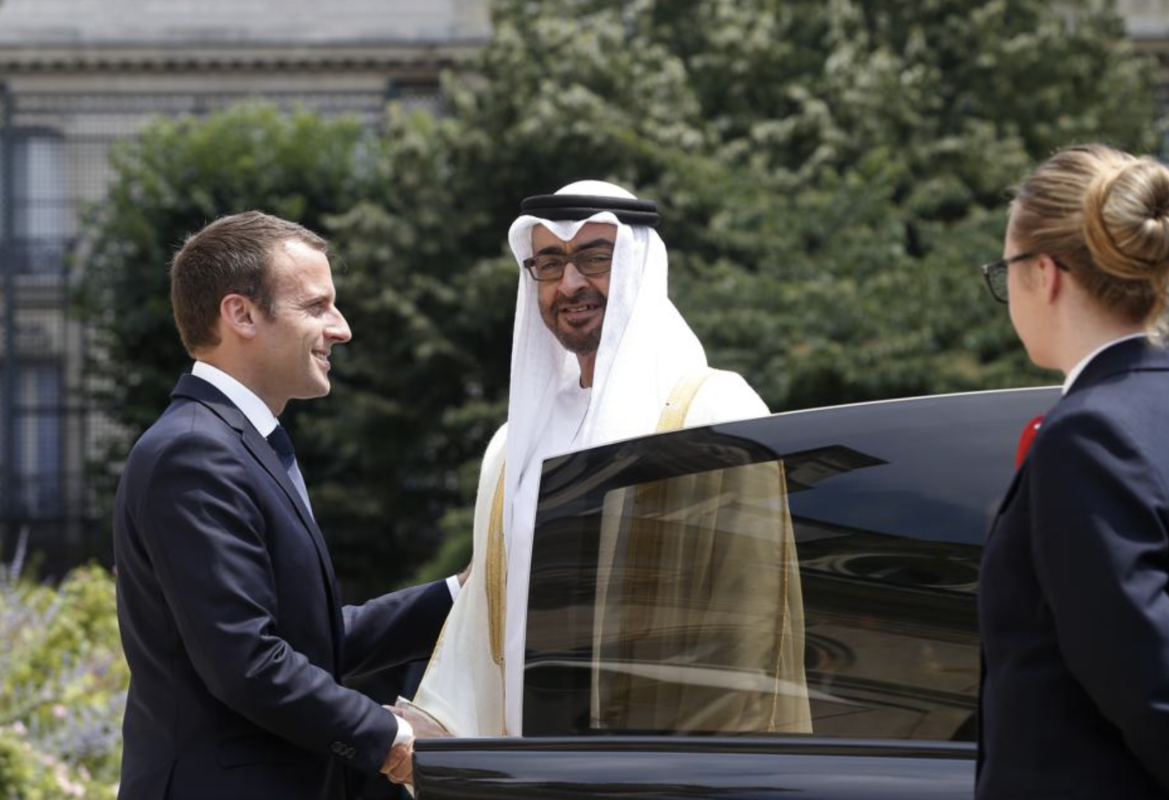Originally posted to The Associated Press website, 3 December 2021
NICE, France (AP) — France announced the signing Friday of a 16 billion-euro ($18 billion) armaments mega-contract for the sale of 80 of its Rafale warplanes to the United Arab Emirates.
The French Defense Ministry said the deal was France’s largest-ever weapons contract for export. It came as French President Emmanuel Macron is in the Emirates on the first stop of a two-day visit to the Persian Gulf. There was no immediate confirmation of the deal from Emirati officials.
Manufacturer Dassault Aviation said the UAE is buying the upgraded F4 version of its multi-role combat aircraft. That will make the Emirates Air Force the first user outside of France of the Rafale F4, it said.
The deal offers a shot in the arm for France’s defense industry after the collapse of a $66 billion contract for Australia to buy 12 French submarines.
Dassault Aviation boss Eric Trappier called the sale “a French success story” and “excellent news for France and for its aeronautical industry.”
Macron’s keen interest in forging personal relationships with leaders like Mohamed bin Zayed Al Nahyan, the crown prince of Abu Dhabi, and his counterpart in Saudi Arabia, Mohamed bin Salman Al Saud, makes him a welcome guest in the region. Both Gulf leaders value a degree of pragmatism when discussing democracy and human rights — issues on which their countries have been heavy criticized by rights groups and European lawmakers — while pursuing business opportunities.
France has deep ties to the United Arab Emirates, a federation of seven sheikdoms on the Arabian Peninsula, particularly since the Sept. 11, 2001, attacks. The UAE opened a French naval base in 2009 at Abu Dhabi’s Port Zayed. French warplanes and personnel are also stationed at Al-Dhafra Air Base, a major facility outside the Emirati capital of Abu Dhabi that’s also home to several thousand American troops.
Months after Macron was elected in 2017, he traveled to the UAE to inaugurate Louvre Abu Dhabi, built under a $1.2 billion agreement to share the name and art of the world-famous museum in Paris.
In September, Macron hosted Abu Dhabi’s crown prince at the historic Chateau de Fontainebleau outside Paris, which was restored in 2019 with a UAE donation of 10 million euros ($11.3 million).
The UAE and France have also become increasingly aligned over a shared mistrust of Islamist political parties across the Middle East, and backed the same side in Libya’s civil strife.
A senior French presidency official who spoke to reporters ahead of the trip on customary condition of anonymity said Macron will “continue to push and support the efforts that contribute to the stability of the region, from the Mediterranean to the Gulf.”
Gulf tensions will be discussed, the official said, in particular the revived talks about Iran’s nuclear deal with world powers, following the U.S. withdrawal from the agreement by President Donald Trump. Gulf countries have long been concerned by Iran’s nuclear ambitions and influence across the region, particularly in Iraq, Syria and Lebanon.
“This is a hot topic,” the French official said, adding that Macron discussed the issues in a phone call Monday with Iran’s president. He will talk about the call and the issues — including the nuclear deal talks in Vienna — with Gulf leaders, who are “directly concerned by this subject, like all of us but also because they are (Iran’s) neighbors,” the official said.
France, along with Germany and the U.K., thinks the 2015 nuclear agreement — with minor tweaks — is the way forward with Iran, analysts say. The UAE and Saudi Arabia have bitterly opposed the West’s negotiated deal with Iran.
“Although the Gulf countries did not like the West’s deal with Iran, the prospect of it falling apart acrimoniously is also bad for them and arguably presents worse risks,” said Jane Kinninmont, a London-based Gulf expert with the European Leadership Network think-tank.
“Their view has always been the West should have gotten more out of Iran before sealing the deal,” Kinninmont said. “But if the West walks away with nothing, the Gulf countries are beginning to understand that their security will not improve as a result.”
Link to the original post: https://apnews.com/article/business-middle-east-france-elections-europe-43bbf5b78be83a1012f18c795b5ab96b


